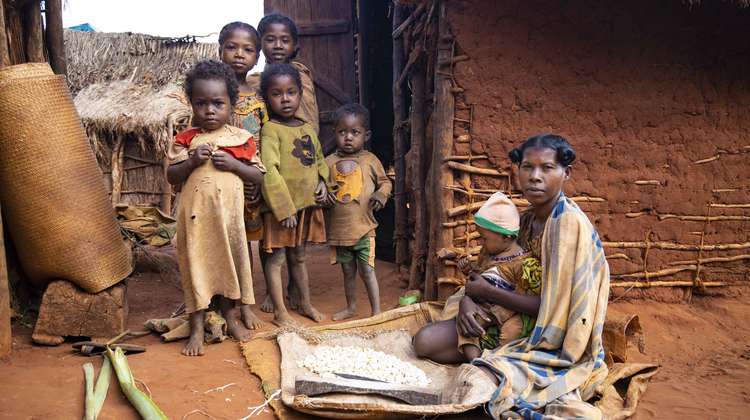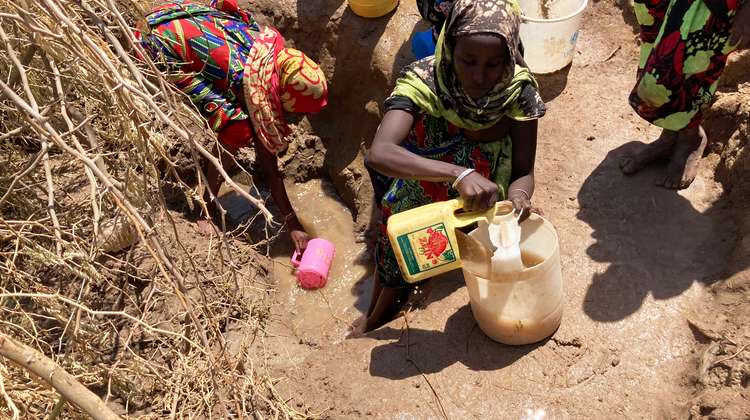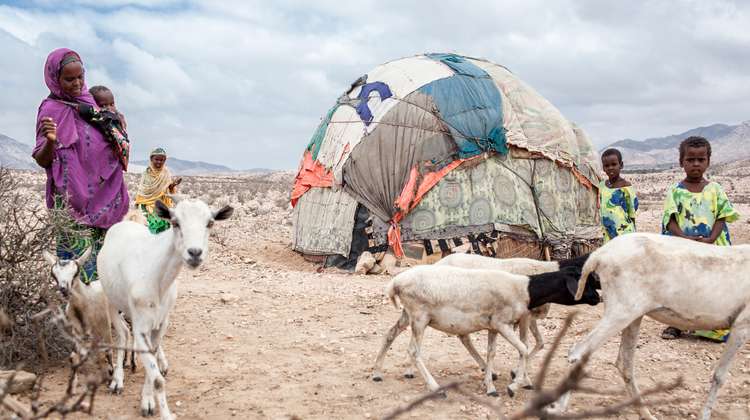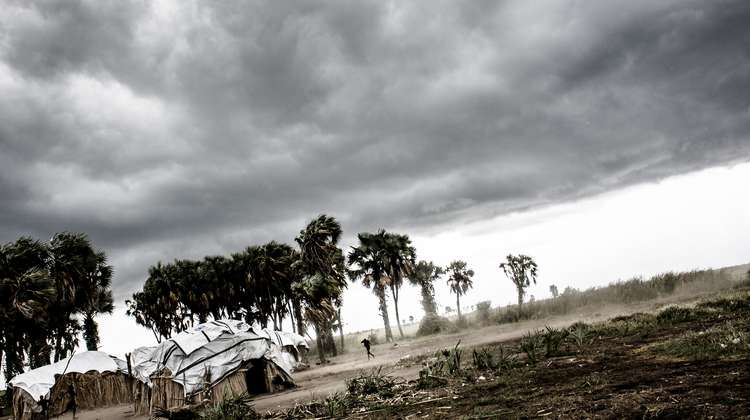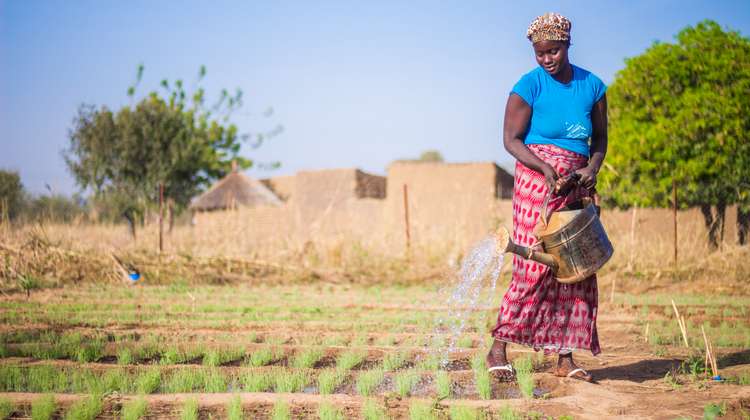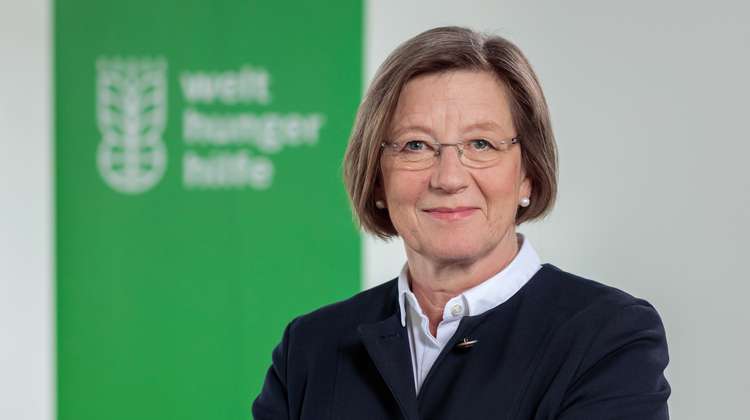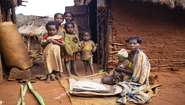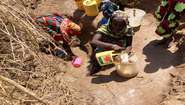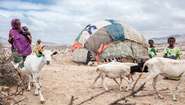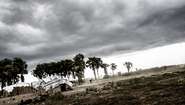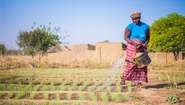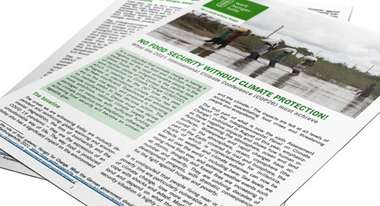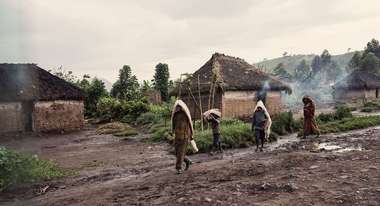Welthungerhilfe: Climate Crisis Causes Hunger
The UN Climate Conference COP26 in Glasgow
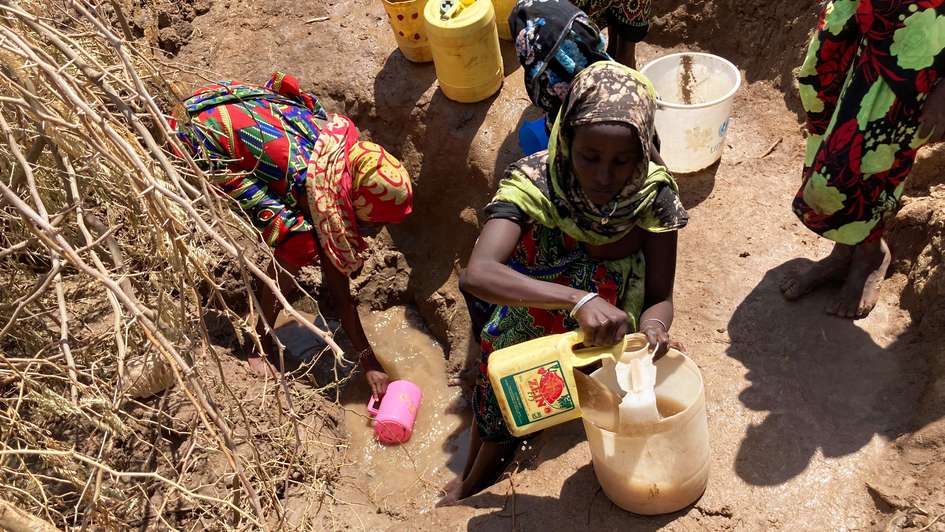
Bonn/Berlin, 2021-10-28. Looking ahead to the 2021 United Nations Climate Change Conference, COP26 for short, which is starting on Sunday in Glasgow (UK), Marlehn Thieme, the chair of the board of Welthungerhilfe, states:
“Climate change is one of the key factors driving hunger. In the past year, around 811 million people suffered from hunger. Changes in the climate are destroying livelihoods throughout the world and causing great suffering in many places. We see this in Africa, for instance, where flooding, sustained droughts, rising average temperatures, and fundamentally altered precipitation patterns are endangering people’s livelihoods. In South Sudan, where around seven million out of the country’s eleven million residents do not have enough to eat, severe flooding destroyed fields, houses, and wells for the third year in a row. The floods affected 700,000 people already weakened by hunger, COVID-19, and years of civil war. Madagascar presents another example, with the country’s southern regions experiencing the worst drought in 40 years due to three years without rain. 1.1 million people are dependent on food aid. Things are especially bad for the youngest of them, as the lives of tens of thousands of children are under threat.
Impoverished countries are bearing the majority of the burden
Climate change is making itself felt at all levels of society, especially among people who lack resources and are already fighting for survival. Impoverished countries are bearing the majority of a burden created by the rich countries of the Global North. This makes climate change, above all, a question of justice. Glasgow cannot be allowed to fail. The climate conference in Glasgow must deliver ambitious national climate targets and sufficiently funded, practical measures for adapting to climate change. Otherwise, we will not be able to end global hunger.”
Michael Kühn, Senior Policy Advisor at Welthungerhilfe, is available for interviews.
Press Photos
Please download high quality images via click on the photo and click on the link "Originalgröße herunterladen" below the picture.
Usage note:Please note that the pictures may only be used in a Welthungerhilfe context and may not be passed on to third parties. Images must bear the credit copyright "Photographer/Welthungerhilfe". No long-term archiving. Please delete pictures after use!
Recommendations and survey results
The results of a representative survey conducted by the Allensbach Institute in August 2021 to assess attitudes to climate change and hunger are available here (in German).
Welthungerhilfe is participating in the debate at COP26:
- In a panel presented by the German Federal Ministry of Finance, Marlehn Thieme, the chair of the board of Welthungerhilfe, will discuss “Climate adaptation and physical climate risk – interplay of central banks, supervisors, civil society and insurance companies” on the 3rd of November, from 17:30 to 19:00 (GMT), in the German pavilion.
- A side event will be held by Welthungerhilfe, ADRA, and OroVerde in the German pavilion on the topic of “Climate resilient livelihoods – a holistic approach to strengthen local capacities and restore ecosystems” on the 8th of November, from 15:30 to 17:00 (GMT): https://www.bmu.de/en/german-climate-pavilion-cop26
Welthungerhilfe is one of the largest private aid organisations in Germany; politically independent and non-denominational. It is fighting for “Zero Hunger by 2030”. Since it was founded in 1962, more than 10,369 overseas projects in 70 countries have been supported with 4.2 billion euros. Welthungerhilfe works on the principle of empowering people to help themselves: from fast disaster relief to reconstruction and long-term development cooperation projects with national and international partner organisations.





